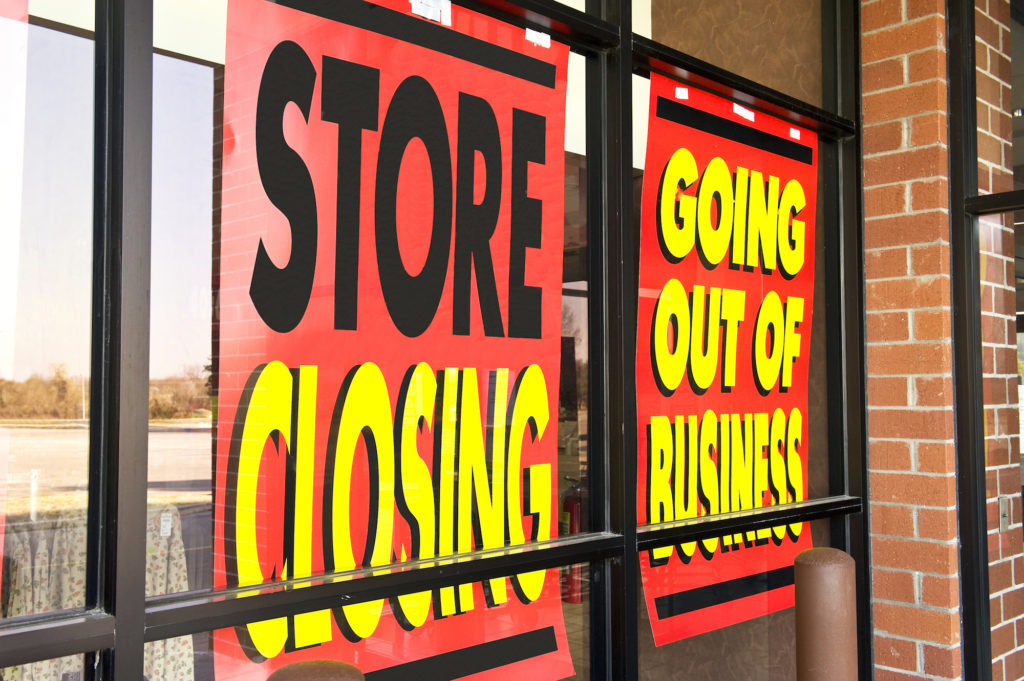Why small businesses fail
Fear melts when you take action towards a goal you really want. Robert G. Allen
There are seven main reasons why small businesses fail or struggle:
1. Lack of a Marketing Strategy and Plan
Many small businesses think that providing a good product or service, having a website and advertising in the Yellow Pages is enough. This may seem to work for them in the short-term but eventually Sales growth begins to decline as they fail to attract new customers (or even retain existing ones).
Without a Marketing Strategy or Marketing Plan a small business may be on the journey to business failure because it cannot ensure it maximises its potential for growth or that it gets a real Return on Investment for it’s marketing expenditure.
2. Insufficient focus on detailed Cost Management
Most small business owners focus all their attention on Sales with little or no consideration given to costs.
As a business grows, so do it’s expenses usually both in cost of goods and overheads. If insufficient attention is given to costs, profits start to fall – even during a growth phase.
Understanding and managing your costs is a vital part of survival for any business.
3. Employee Performance Issues
As a business grows, many small business owners find that they become increasingly frustrated with their employees.
Unless you build a solid foundation for managing your employees, the above issues only get worse as your business continues to grow. In the end, this will contribute to your business entering the Decline phase of your Business Life Cycle and running the risk of business failure lot sooner.
As soon as your business requires more than one person, you need to begin to put an Employee Management System in place that will grow with your business and support your business success!
4. Reactive Cash Flow Management
During the growth phase, small businesses typically find they struggle to maintain cash flow. Often their customers owe them more than they owe suppliers, but there is never enough money in the bank to pay wages and suppliers when necessary. So the cycle of juggling supplier payments and making debt collection phone calls repeats itself week in and week out. Additional cash flow impacts of hiring new employees or purchasing additional assets is also often not considered.
Reacting to cash flow issues as they occur, rather than planning for them adds a significant load to the business. The time spent in dealing with angry suppliers and chasing money from customers takes time away from focusing on the survival and growth of the business.
Unless a Cash Flow Management system is put in place, the cycle of reacting to cash flow issues will never be broken and the survival of the business is put at risk!
5. Insufficient business knowledge of the owners
Most small business owners do not have any experience at running a business and often under-estimate just what that involves. “We will learn as we grow” is the common attitude.
Soon enough they discover that getting on top of Bookkeeping, Wages Laws, staff problems, marketing, business expansion, cash flow etc. is more than they can manage and their business begins to suffer.
It takes an awful lot of knowledge and experience to run a successful business. The time it takes to learn it all can be daunting and a failure to grasp the basics can significantly increase the risk of business failure.
Finding an experienced business coach to guide and advise you along the way can offset this lack of knowledge and help your business on the path to success!
6. Inefficient Business Processes
The establishment of processes in a business usually start off small. Manually written quotes and invoices are a good example. Things also change as a business grows and what used to be “in someone’s head” needs to become more formalised as the volume of work increases. What worked well in the past may no longer work well in the future.
As a business grows, processes need to be reviewed and improved to ensure overhead costs and problems are kept to a minimum and don’t put your business at risk of business failure.
Business Process Improvement needs to be targeted to ensure you get a quick return on investment and support the growth of your business!
7. “Tactical” rather than a “Strategic” approach to the business
Most small business owners are focussed on the daily issues of running their business, reacting to problems as they occur. This causes their dreams and vision for the business to be put on hold for a later day. With no strategies in place to guide them, they lose sight of the bigger picture and put the survival of their business at risk.
A Business Strategic Review will let you sit back and take a realistic look at your business and develop a realistic Business Development Plan that will ensure your business survival by helping you target the areas of your business that need it most!
Most small business owners recognise the above issues, but fail to act on them.
Believing that no-one can understand their business as well as they do: rather than believing there is someone who can bring a wealth of knowledge and experience with them, understand their business and share their dreams.
Thinking getting help is an admission of failure: rather than acknowledging that they cannot be an expert in everything and that there is help available to support them in the areas they are struggling with Thinking they can fix things by themselves, rather than admitting they haven’t been able to fix the things they wanted to in the past and the reasons why.
Seeing getting help as a cost rather than an investment: rather than seeing the potential return for their business.
Having had a bad past experience getting help or know someone who has: rather than learning from that experience and being sure they get the right help they need.




